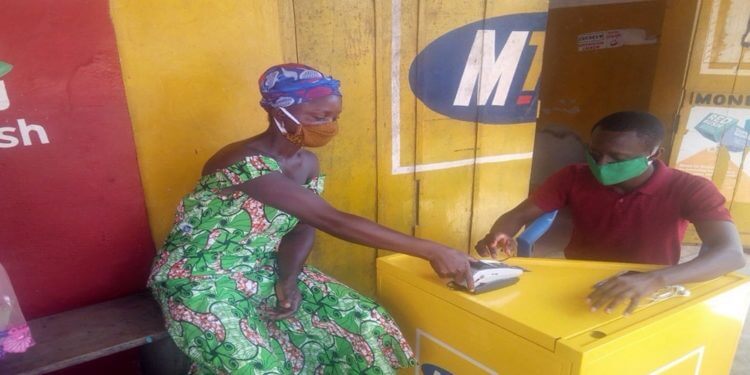As in much of the world, the COVID-19 pandemic has severely impacted the economic well-being of millions of Ghanaians. The economic fallout has been driven by a pandemic-triggered global slowdown, containment measures imposed by the government, and reduced interpersonal contact among Ghanaians to help lower the risk of infection.
Simulations and surveys (e.g., 1, 2) suggested that the economic impact has been worst in the country’s two largest cities, Accra and Kumasi, which underwent a partial lockdown for over three weeks in April. These findings also suggested that the negative effects were felt widely across the country, including in rural areas and in the less developed central and northern parts of the country, where poverty is greater.
The government has introduced a variety of interventions to assist those affected. Measures have included several months of free water and free or subsidized electricity services to public utilities customers; soft loans to qualified micro, small, and medium-sized enterprises; and an initiative, implemented in partnership with faith-based organizations, to provide free food and other essentials to those in need in Accra and Kumasi during the partial lockdown.
The government has also leveraged its main social safety net programs to support Ghana’s poorest and most vulnerable families. Authorities have adapted implementation of the programs to reduce the risk of infection to both program personnel and beneficiaries.
The government sought the guidance and support of international development partners, including coordinating with the World Bank, in part, through the Ghana Productive Safety Net Project. Launched in 2019, the project provides financial and technical assistance to the Government to enhance its social protection system and the implementation of its main social safety net programs.
One of the programs is the Livelihood Empowerment Against Poverty (LEAP) program. LEAP currently offers cash benefits every two months to about 332,000 households (about 1.5 million individuals). Cash received by households in each round of transfers ranges between 64 and 106 Ghana cedis (the equivalent of between US$12 and US$20). While the program covers the entire country, most beneficiaries live in northern Ghana.
To help mitigate the economic impacts of the pandemic, LEAP provided an additional one-off round of cash transfers to beneficiaries in May. Unable to distribute cash transfers at community sites, the program relied on contactless transfers. Beneficiaries used electronic benefit transfer cards to withdraw cash from ATMs, with LEAP providing a top-up benefit (10 Ghana cedis for urban beneficiaries and 20 Ghana cedis for rural beneficiaries) to help defray the cost of transportation to banks.
Since cash distributions at community sites resumed in July, LEAP has made masks and disinfection and hand-hygiene supplies available and enforced physical distancing at the sites.
Image

The Labour Intensive Public Works (LIPW) program has also supported Ghanaians during the pandemic by providing work opportunities in northern Ghana.
LIPW beneficiaries can work for up to 180 days (no more than six hours per day) over two consecutive agricultural off-seasons, at the prevailing national minimum daily wage, which in 2020 is 11.8 Ghana cedis (equivalent to slightly over US$2). LIPW work opportunities include maintenance and rehabilitation of rural roads and small earth dams and dugouts, soil conservation, and tree planting. The program also ensured that at least three-fifths of LIPW beneficiaries are women.
When COVID-19 hit Ghana, about 14,000 individuals (from just as many households) were working under LIPW. As the government closed schools to help slow the spread of the virus, LIPW reduced work hours to allow mothers and caregivers to attend to their children while continuing to pay full daily wages.
The program has also taken steps to protect workers’ health by reducing the size of work crews, adjusting crew rotations, and enforcing physical distancing. All LIPW sites have made masks and disinfection and hand-hygiene supplies available.
How the pandemic will evolve across the globe and in Ghana remains unclear, with new waves of infection possible. In Ghana, the economic turmoil caused by the pandemic leaves the country more vulnerable to other, potential large-scale shocks or crises domestically or in its main international trading partner countries. Social safety net programs offer an important instrument to respond to these risks. However, the programs suffer from shortcomings in terms of the number and categories of individuals covered, their reach into urban areas, and the amount of benefits offered. These limitations impair the effectiveness of these programs in addressing poverty and the effects of the pandemic.
To provide timely and effective support during crises, these programs will also need to incorporate structures and processes that allow authorities to smoothly and swiftly expand coverage, accurately target populations, raise benefit amounts, or adjust frequency of benefits distribution when needed.
LEAP and LIPW represent two examples of the government’s first round of response through its social safety net programs. The government will continue to deploy and expand social protection programs to protect its citizens and build resilience against future shocks. As the pandemic threatens hard-won gains in human capital over the past decade, effective social safety nets are vital in helping, protect and invest in people and lay the foundation for a sustainable recovery in Ghana.
Source: worldbank.org










